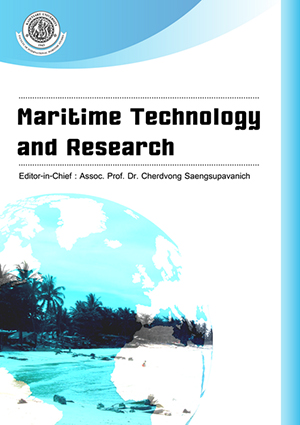ThaiScience
ThaiScience
MARITIME TECHNOLOGY AND RESEARCH
Volume 5, No. 01, Month JANUARY, Year 2023, Pages 260 - 194
Autonomous ships, port operations, and the challenges of african ports
Olabisi Michael Olapoju
Abstract Download PDF
The introduction of autonomous shipping (AS) into the maritime industry is bringing with it a great shift from conventional shipping to a digitalization mode. Expected benefits, which form the bases for conceiving and developing this innovation, include safety, security, and environmental protection. This innovation is not without some risks, such as non-navigation, cyber-piracy, and other issues which are always associated with new technology. This paper presents recent trends in shipping operations from the 18th century onwards, trends in autonomous system services, and the benefits and challenges of autonomous ships. The paper also navigates three (3) key potential challenges to Africa’s adoption of autonomous shipping in the event of its adoption for commercial shipping. These challenges are Africa’s trade level and trade facilitation, the state of infrastructural development, and piracy and maritime cyber-crimes in Africa. It is suggested that stakeholders in Africa’s maritime industry and government should fashion holistic strategies for trade facilitation, rapid development of key trade infrastructures through investment, and intergovernmental capacities towards curbing piracy activities in the region’s maritime routes.
Keywords
Autonomous, Seaports, Africa, Infrastructure, Piracy, ChallengesMARITIME TECHNOLOGY AND RESEARCH
Published by : Faculty of International Maritime Studies, Kasetsart University
Contributions welcome at : https://www.tci-thaijo.org/index.php/MTR
